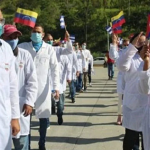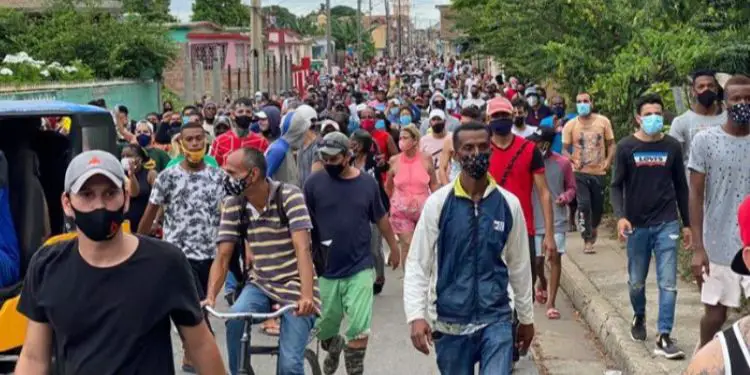AND
the right to abortion in the United States has been supported by the ruling issued 50 years ago by the Supreme Court of Justice. It was on January 22, 1973 when that Court announced its decision on the Roe v. Wade case, which had been filed by Jane Roe, a single mother of two who wanted to terminate her third pregnancy safely and legally. She argued that the law violated women’s right to privacy and sued Henry Wade, a county attorney who refused to stop going after the doctors. The Court sided with Roe and struck down the Texas law, which prohibited abortion. That was how it was recognized that the constitutional right to privacy is broad enough to include a woman’s decision whether or not to terminate her pregnancy
. Roe made restrictive state laws unconstitutional and made abortion services more widespread, safer, and more accessible to women across the country.
Fifty years later, one of the most serious setbacks to women’s rights occurred in the United States. On June 24 of last year, the Supreme Court reversed the landmark 1973 Roe v. Wade abortion rights decision, ruling that individuals no longer have that constitutional right and allowing states to ban abortion at any stage. Almost half of the states in the country today process new restrictions and prohibitions.
On January 22, the 50th anniversary of the ruling in the Roe v. Wade case, massive marches were held to recover the right to abortion in various cities in the United States and, in the opposite direction, other marches for the lives of anti-abortion activists commemorated its dismantling. In reaction, President Joe Biden vowed that he will do everything in his power to restore abortion rights; For her part, Vice President Kamala Harris publicly lashed out at efforts in Washington and Republican-governed states to restrict abortion, which Harris called fundamental and constitutional right of women to make decisions about their own body
(AP News, 1/22/23).
With the annulment of the Roe v. Wade ruling, new generations will reach reproductive age with fewer rights than their mothers and grandmothers had. It is serious, because the greater the restriction, the greater the risk of death from abortion; Among the most affected are our migrants. Of the 5.3 million countrymen who were born in Mexico and live in the United States, 3 million are Mexican women of reproductive age, between the ages of 15 and 49 ( American Community Survey, 2021). We know that with the current medications to induce abortion, safety has advanced significantly: the risk of death from abortion is one in 100,000 procedures; To measure comparatively, the risk of death associated with childbirth is 10 times greater (Roe vs. Wade, background and impact
Planned Parenthood of America, May 2010).
While the United States is going backwards, more than 50 countries have modified their legislation in the last 25 years to allow access to abortion. One fifth of them in Asia. In Latin America, legislation has advanced in Mexico (decriminalized in 10 states), Chile, Argentina, Ecuador and Colombia. In half of the countries in Africa there is also progress. Europe is the continent where the right to safe abortion is more widespread.
In the book The event, by the French writer Annie Ernaux, the winner of the 2022 Nobel Prize for Literature masterfully exposes the painful processes she went through in October 1963, when she discovers that she is pregnant and at that moment there is no doubt that she does not want to be a mother. In that France where abortion was penalized with imprisonment and a fine at the time, when seeking a clandestine abortion she finds herself alone and helpless in the face of a society that turns its back on her. “I was not apprehensive about the idea of having an abortion. It seemed to me, if not easy, at least feasible; that it was not necessary to have any special courage to do it. It was a very common misfortune. It was enough to follow the path along which a long cohort of women had preceded me. Since adolescence she had been accumulating stories related to abortion. She had read them in novels or had heard them whispered to the neighbors in the neighborhood. She had been acquiring a vague knowledge of the methods that could be used: the knitting needle, the petiole of parsley, injections of soapy water, horseback riding. […] One morning I lay in bed and cautiously slid the knitting needle into my sex. I was groping, without finding it, for the cervix and I couldn’t help but stop as soon as I felt pain. I realized that she would not be able to do it alone. She felt desperate for my impotence. It wasn’t up to par. Nothing. Impossible. I cry. I’m fed up. After my unsuccessful attempt, I telephoned Dr. N. I told him that I did not want to have it and that I had injured myself.”
The text narrates the pain and horror that Annie experienced for months until she was able to terminate her pregnancy with a midwife: But precisely because there is no longer any prohibition on abortion, I can face this unforgettable event in a real way.
.
* Conapo General Secretary
Twitter: gabrielarodr108
















